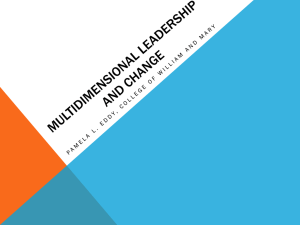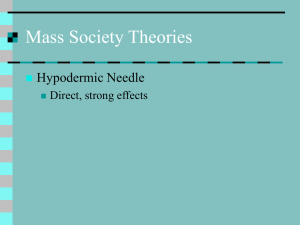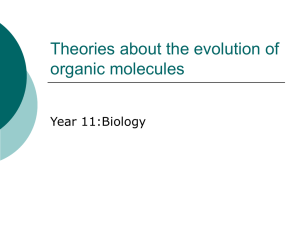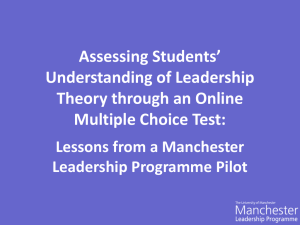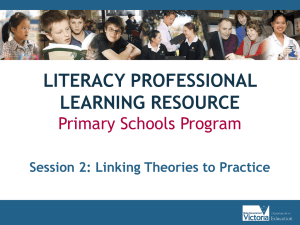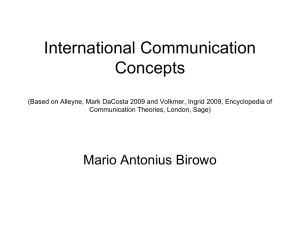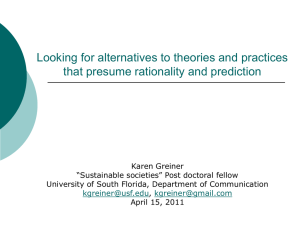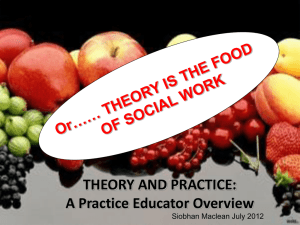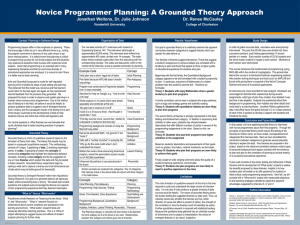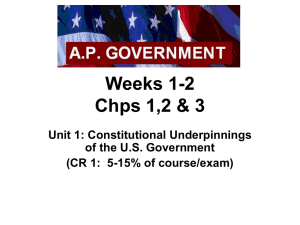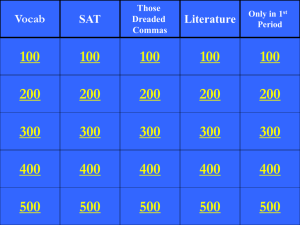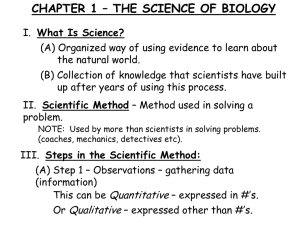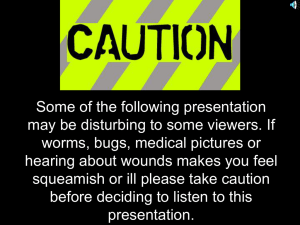How do Scientific Theories Change Over Time?
advertisement
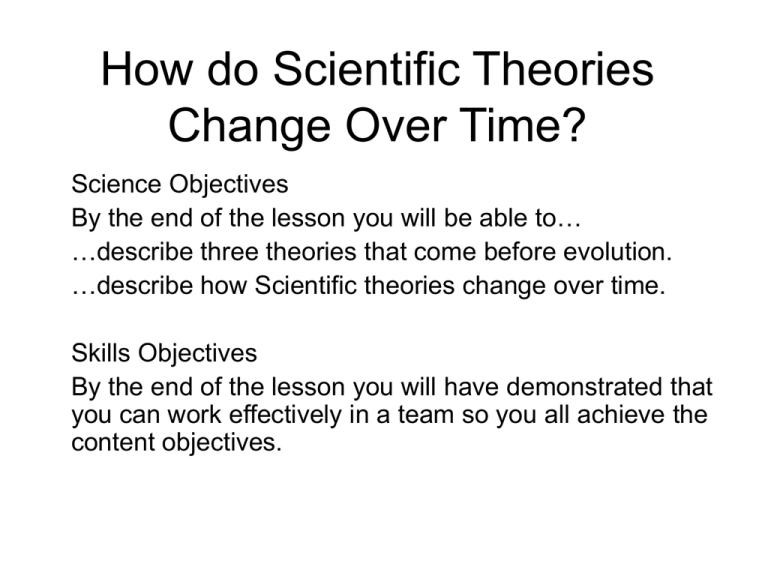
How do Scientific Theories Change Over Time? Science Objectives By the end of the lesson you will be able to… …describe three theories that come before evolution. …describe how Scientific theories change over time. Skills Objectives By the end of the lesson you will have demonstrated that you can work effectively in a team so you all achieve the content objectives. Disproved theories match-up: match the theory to how it was disproved. Martian Canals: A network of canals on Mars thought to be a sophisticated irrigation system developed by an unknown intelligent species. Pasteur showed thatr maggots would not appear on meat kept in a sealed container. The microscope helped to show the existence of micro-organisms. Spontaneous generation: More powerful telescopes showed that the canals were streaks for dust blown by Life arises from inanimate matter like heavy winds. slime, mud and earth. Aristotle ‘proved’ this by observing maggots being ‘generated’ by dead bodies and barnacles forming on the hull of a boat. A static universe: The universe is the same size as it always has been and is not getting any bigger. Einstein calculated this into his theory of relativity. Edwin Hubble discovered ‘Red Shift’, which is how the colour of heavenly bodies change as they move away from us. Team Roles • Checker; check for understanding and agreement. • Praiser/encourager; praise effort and ideas. • Recorder; record ideas and decisions. • Taskmaster; bring your team back to the task. • Gatekeeper; make sure all participate (no bully, no loafer) • Reporter; Share with other teams, the class, the teacher. • Researcher; Sorts and identifies important information for the team. Match up the theories to the person who thought of it and when they did it. Theory Time Person Theory of Spontaneous Generation: living things can come from non-living matter. The idea came from the observation that 384-322BC Aristotle 1809-1882 1744-1829 Jean-Baptiste Lamarck 1809-1882 Charles Darwin maggots come from dead bodies. Inheritance of Acquired Characteristics: Animals develop parts of their bodies to help them survive. This change is passed on to their offspring. For example giraffes stretch to reach leaves high on trees and this is passed on to their offspring. Theory of Evolution – animals that have useful characteristics survive better than those that don’t so the useful characteristics are passed on to their offspring. Your research task Find the answers to: • What was the evidence for the theory? • Why did people believe it? • What didn’t make sense about the theory? • How was the theory disproved? • Why was this? Make sure you stay in the role on your role card. Envoy • One person from your group will visit another group. They will take their expertise in your theory with them. • The ‘envoy’ will teach the new group all about their theory. • The group being visited will then share their information about their theory. • Then all of the new group will decide: – Which theory came first? – Which theory is more accurate? – Are there any links between the two theories? Create a Timeline • Back to your old group. • Create a timeline of all theories. • Your teacher will question the timeline to see how well you understand how theories change over time. In a lift… • You are in a lift that goes to the top of the Beetham Tower. • It takes 90 seconds to get to the top. • Pupil 1 has 30 seconds to say what they learned. • Pupil two has 30 seconds to say how they learned it. • Pupil 3 has 30 seconds to say why the learning is important.





